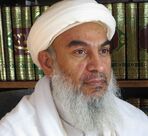The Qurʾan and its DisbelieversAccording to the majority Muslim opinion, the first revelation of the Qur'an occurred when the Prophet, upon him blessings and peace, was in retreat at the cave of Hira, some fifteen kilometers from the Kaba, the ancient House of God, built by the Prophets Ibrahim and his son Ismail, upon them peace, approximately twenty five hundred years prior to this event; the last verses of the Qur'an were revealed in 632, just a few days before the death of the Prophet in Madina, the oasis town to which he had migrated in 622.
|
Muzaffar Iqbal
|
|
© Center for Islamic Sciences. All Rights Reserved.
Designed and Developed by Crescent Marketing Solutions |


